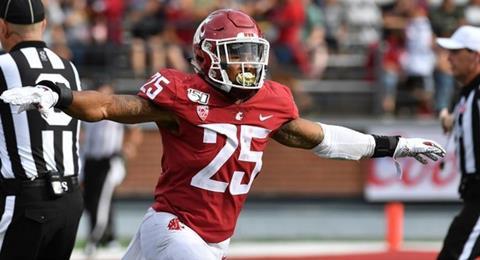Tom McGirr, executive director of strategy and creative at The Wild By Jungle, on how American sport is attracting younger viewers

Sport no longer plays out exclusively on the pitch or in the stadium. When the whistle blows, the conversation doesn’t stop. In fact, it’s noisier than ever in the space before and after the game is played. On our phones, our social feeds and WhatsApp groups.
We know that the sports content diet of Gen Z audiences is increasingly consumed online, and has less to do with the game itself, than the adjacent stories. Players’ lives, team gossip, and fan-on-fan banter attract more engagement than the traditional TV shows or coverage.
GWI’s research shows that Gen Z significantly over-index in their interest around the NFL, and specifically, the Super Bowl. But interestingly, that isn’t the case when it comes to British sports, and programmes.
So, what is it about North American sports culture that is attracting Gen Z in greater numbers?
The festivalisation of sport
The American sports experience is 50% the game itself, and 50% carnival. The food, the fashion, the dancers, the audience participation. From the Kiss Cam to player-owned content online and world-class choreography, there’s always plenty going on besides the game.
North American gameday has also always been a family affair, not solely a male-dominated tribal matter. This stems from the Friday college football matches, the reunions around the TVs and the family-feel of many NFL games.
So it is unsurprising that Gen Z, with their more tolerant and inclusive mindsets, gravitate towards a spectacle where ‘all are welcome’ and there is something for everyone.
Locally, think Clapton FC and Dulwich Hamlets football clubs, both accruing significant fan bases due to their political and social POVs, and initiatives.
More than that, these teams and clubs have become a safe and welcoming meeting place for like minded people who want to feel part of a community. This is significant as, according to VML Intelligence’s Future 100 report, 66% say there is no sense of community anymore while 67% of people agree that community is more important than one individual.
At the Super Bowl, all are welcome
When it comes to the Super Bowl, ‘all are welcome’ has always been the theme, whatever community you feel part of. Whether that’s the die hard fan or the Gogglebox-esq commentator. There is so much to enjoy, so much spectacle to take in and so much online conversation to be part of, that it’s no surprise Gen Z get onboard more readily than they do with British sports.
And the NFL has embraced it. From the brand ad teasers pre-event - see Victoria and David Beckham for Uber this year - the half-time show announcement - complete with Apple short film for Usher - and the in-stadia spectacle.
While the game itself will be discussed online, the majority of social chatter will focus on everything happening before and after the whistle blows, not solely during.
Win big on cultural currency
While there’ll be endless debates – yet AGAIN – about the power of TV ads in the context of the Super Bowl, the opportunity is clear. The Super Bowl gives brands a chance to win big on cultural currency.
And we’ve seen brands play to it. There’s been an increased use of talent as well as creators and influencers to fire up conversations online. Brands have been sharing ad teasers ahead of time, mirroring fashion ‘drops’, with a hype phase prior to release. And more ads have been referencing viral (social) moments e.g. the Beckhams and Victoria’s Rolls Royce.
All this is engaged with, with an understanding that the hype around your brand exists before, during and after the event, and each is a distinct opportunity. To extend the engagement and facilitate rolling conversation by putting social at the heart of any comms framework.
The annual cultural election
The Super Bowl is essentially an annual cultural election. The question is, what can we take away from the Super Bowl?
That Gen Z might not demonstrate the same tribalism around sport as older audiences, but that they are keen for new experiences and can be brought in through adjacent passions. This opens the world of sport up to brands and categories that might not have traditionally played in this space.
That the digital package associated with sports rights should be core to the sponsorship, rather than an add on.
And that cultural currency and relevancy is increasingly the metric against which your brand comms should be measured.
So, how will you and your brand vote this weekend?

Tom McGirr is executive director of strategy and creative at The Wild By Jungle







No comments yet